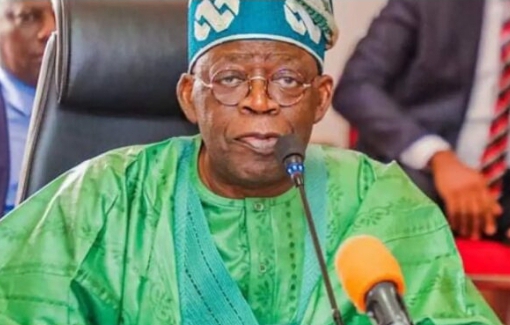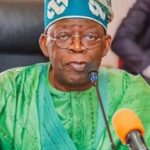Politics in Nigeria has transformed into an enterprise rather than a platform for social service. Nigeria’s political sphere has been hijacked by businessmen, whose priority in politics is the return on their investment rather than the welfare of the state. As a result, the nation faces a myriad of challenges, including the erosion of good ideology, poor policy-making, and alteration of the genuineness of leadership in the country.
It is crucial to examine the detrimental effects of these developments and seek ways to restore the integrity of political leadership in Nigeria. This article explores how “Political Merchants” have cornered Nigerian politics, raising the bar of entry to a level unattainable for those with a genuine passion for serving the people.
The term “merchant” or “investor” typically refers to a person who is involved in a trade or invests funds with the expectation of generating a return on his/her investment. In a political context, a “Political Merchant” could be someone who invests funds in politics with a focus on a high return on investment. It’s important to note that the term “Political Merchant” might not be in common use, but these terms will gain prominence in this discourse.
However, the people this blog post will refer to as “Poli-merchants” are usually wealthy individuals who have turned Nigerian politics into a big business with the expectation of making a significant return on investment. As a result of the incursion of this individual in politics, the original purpose of politics which is to serve the people has been overshadowed by the pursuit of stupendous wealth.

In recent times, the incursion of “Poli-merchants” into Nigerian politics has become a growing concern. A political party, by definition, is an alliance of individuals sharing a common ideology, joining forces to attain political power and govern for the betterment of the nation. Ideology serves as the guiding force behind a political party, providing it with direction and identity.
However, the incursion of political merchants into Nigerian politics has led to a dilution of genuine ideologies, as their primary focus often lies in personal gain rather than the welfare of the state. This intrusion undermines the very essence of a political party, compromising its ability to serve as a vehicle for true representation and progress. It is crucial to address this issue and restore the integrity of Nigerian politics, ensuring that parties are driven by genuine ideologies that prioritize the nation’s overall interests.
Read Also: Direct Taxes Deduction from Every Bank Transaction Can Boost Tax Revenue
Once a “Poli-merchant” attain public office, the true purpose of serving the people is jettisoned for recouping and acquisition of surplus wealth at the expense of the public. They are driven majorly by self-interest and financial gain, and their actions have transformed the political landscape into a breeding ground for the exploitation of public funds and greed.
As a result of these traits, politics in Nigeria has shifted focus from being a platform for social service to a money-making venture. That’s why today’s politicians are nothing more than “Poli-merchants” who invest in politics with the sole intent of making a massive return on their investment.
While Nigerian “Poli-merchant” prioritize luxuries, mansions, affluence, flamboyancy and the glamour of office; the majority of their counterparts in America chose to sleep in office throughout their tenure. Seeing how these American legislators prioritize serving their constituents rather than personal comfort is commendable. These are politicians from the largest economy in the world, yet they choose to sleep in their offices and share apartments, and cars.
In America, only the Speakers of both Houses have personal security. However, the situation is quite different in Nigeria. The “Nigeria Poli-merchants engrosses in an unholy competition of accumulating riches over the states and society’s needs. Their focus on personal gain has beclouded the pursuit of the actual purpose of politics.

In the past, elected officials were chosen based on their charisma and commitment to the progress of society. However, the dynamics have shifted since the incursion of Polimerchants into Nigerian politics, where the prevailing ethos can be described as “cash and carry.” Leadership positions are now determined by the highest bidder, undermining the core principles of the Nigerian political system. Nowadays, participating in politics involves a level of financial investment that is out of reach for those who genuinely care about the well-being of the people and have a strong desire to serve them.
Just imagine the disenchantment of a passionate and idealistic young Nigerian who dreams of entering politics to make a positive impact on the lives of fellow citizens. Filled with enthusiasm, they set out on a journey to represent the voices of the people and fight for their needs. But sadly, their dreams are shattered when they encounter the harsh reality of “Poli-merchants” who spends excessive amounts of money to secure positions of power, often at the expense of more qualified and sincere candidates.
Read Also: Transform Nigerian Local Councils into Agric Development Centres to Enhance Productivity
Unfortunately, the politicians willing to serve the public selflessly have been relegated and displaced by these crops of Poli-merchants who have permanently taken control of Nigeria’s political sphere. Politics, which is supposed to be a service to society, has thus become a money-making venture and has turned into a game where the highest bidders win. This intrusion of Poli-merchants has eroded the importance of ideology and significantly altered the leadership landscape in Nigeria.
The rise of these Poli-merchants in Nigeria is a bitter pill to swallow. It’s a betrayal of the hopes and dreams of everyday Nigerians who long for genuine leadership, and a betrayal of the faith that the people have placed in social contract. Just imagine living in a nation where elected representatives see public office as an opportunity to make a lot of money rather than a chance to serve the people. The consequences of this betrayal are felt by ordinary Nigerians who bear the brunt of this exploitation. It’s a never-ending cycle of exploitation that continues to wreak havoc, leaving the hopes and dreams of the people shattered and their lives in turmoil.

Public funds, meant to uplift the nation and provide vital services have become easy prey for these unscrupulous politicians. They manipulate budgets, divert funds that were supposed to be used for infrastructure development, healthcare, and education, stash away enormous sums of money in foreign accounts and hoard the rest at home.
It’s a deeply unjust situation that deprives the people of the progress and prosperity they deserve. As a result, the quality of elected representatives diminished the impact of principled leaders who once steered the nation. We no longer have visionary leaders who could think outside the box. The unending desire to recuperate their investments has beclouded their vision and has led to a lack of strong ideologies, poor policies, a decline in legislative quality, and compromised debate standards.
The life cycle of Poli-merchants revolves around accumulating wealth and power, often at the expense of the nation’s progress. Once they have recouped their initial investment and made a profit, they set aside a significant reserve to purchase even higher political positions. With a newfound treasure, they indulge in lavish lifestyles, expensive clubs, choice wines, and personal pleasures.
This lifestyle eventually takes a toll, leaving them tired and in need of rest. They retreat to their bedrooms and sleep deeply, often waking up close to noon on the following day. This pattern of life and cycle continues and left them with no time to consider policies that will benefit the public and this perpetuates a lack of good ideas that can truly address the needs and aspirations of the people they represent. As a result, the nation suffers from a dearth of innovative and people-centric policies that could bring about positive change.
Read Also: 2023 Population Census: A Necessity for Addressing Nigeria’s Problems
Meanwhile, ordinary Nigerians bear the consequences of these inadequacies. One wonders how a nation will strive for decades on obsolete methods of generating power from a single source when many other means of providing electricity are available. Think of a nation whose courts and police stations still rely on hardcopy case registers in this modern age of computers. Think of a nation that keeps expanding its workforce and increasing overhead costs, even though they have to borrow money to pay its employees.
Think of a nation that sticks to an ancient education curriculum and fails to adapt our education system to meet contemporary needs. Think of a nation whose lawmakers no longer make meaningful contributions to law-making, but focus on flaunting wealth made at the expense of the public. These questions highlight the frustrations of the incursion of business-minded politicians into Nigerian politics and the lack of progressive ideologies, and poor policies under successive regimes since 1979.
Nigerians deserve leaders who are forward-thinking, and who prioritize the progress and well-being of the people. It’s time for a change, and political reform is urgently needed. Nigerians must strive for a political landscape that prioritizes serving the people over personal gain. We must have a referendum to make politics unattractive to investors. This is the path to reclaiming our nation’s dignity and creating a brighter future for everyone.
To achieve this, we need to reduce the cost of governance and make the political office less attractive to Poli-merchants. Those aspiring to lead must be ready to undergo political tutelage. Those who are not suited for dedication to selfless service with sincerity and commitment to this purpose should be redirected towards vocations where their skills are better suited. It’s time for Nigerians to demand a change towards a political system that truly serves the people and paves the way for a brighter future for our beloved nation.
In conclusion, the incursion of political merchants into Nigerian politics has brought about a concerning trend where ideology takes a backseat, this has dealt a severe blow to the ideal of genuine leadership and has eroded trust and perpetuated inequality in the nation. However, the future is not without hope. It is up to the Nigerian people to demand political reform and work towards a political landscape where integrity, and the welfare of the people take precedence.
Without a clear and guiding ideology, politics become mere vehicles for pursuing power and relevance. The Nigerian political system must reassess and review its ideology. By reinvigorating the importance of ideology, politics can reclaim its purpose and provide a solid foundation for leadership and governance. Only through a strong ideological framework can Nigeria’s political system truly serve the interests of its people and promote meaningful progress and development. By reclaiming the true spirit of politics, Nigeria can overcome the influence of Poli-merchants and build a brighter future founded on a sincere commitment to serving the nation and its people.
Idowu E. Faleye, a certified Data Analyst, Political Activist, and writer, is a graduate of Politics & Public Administration. He’s the Founder/Chief Data Officer at EphraimHill Data Blog –a Data Reporting Site that is niche in Politics & Society. He can be reached at +2348132100608. or ephraimhill01@gmail.com












































![The Trend of Insecurity in Nigeria. [Part 2]](https://ephraimhilldc.com/wp-content/uploads/2024/09/Computer-Monitoring-of-Remote-areas.png)


































